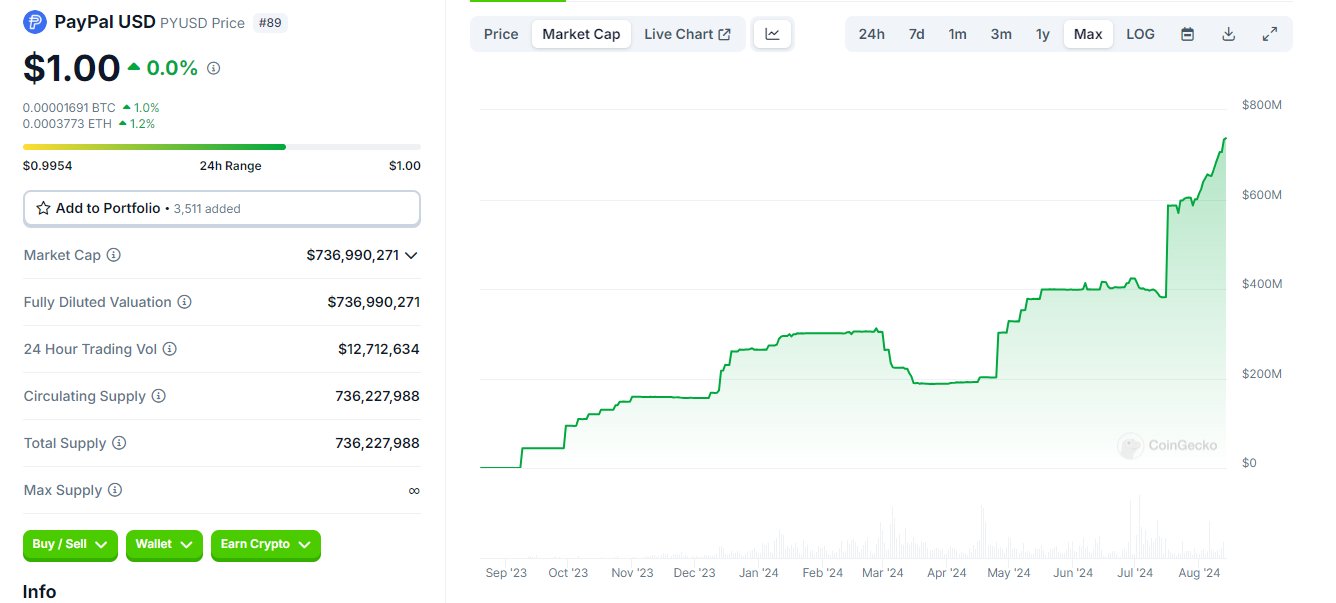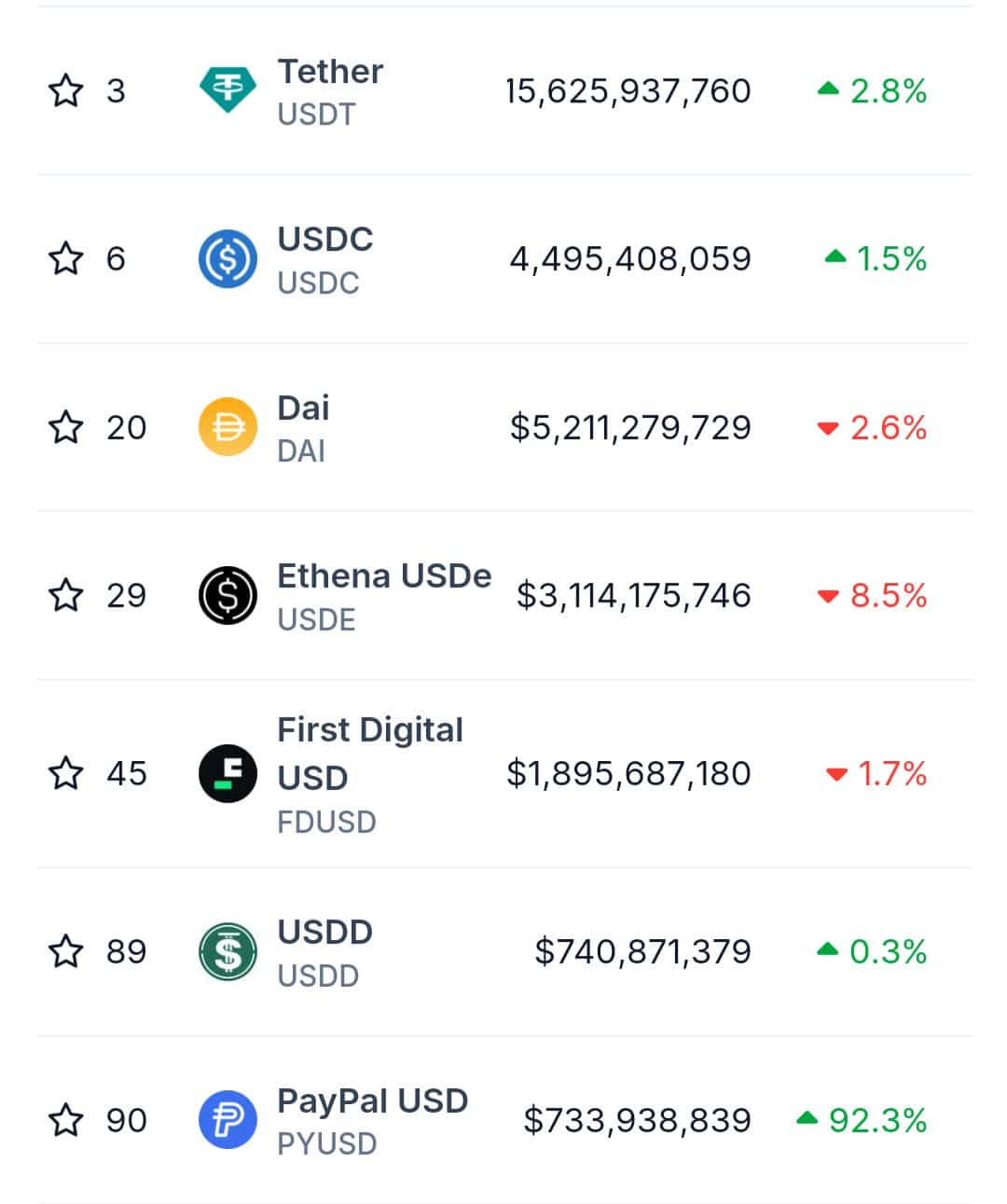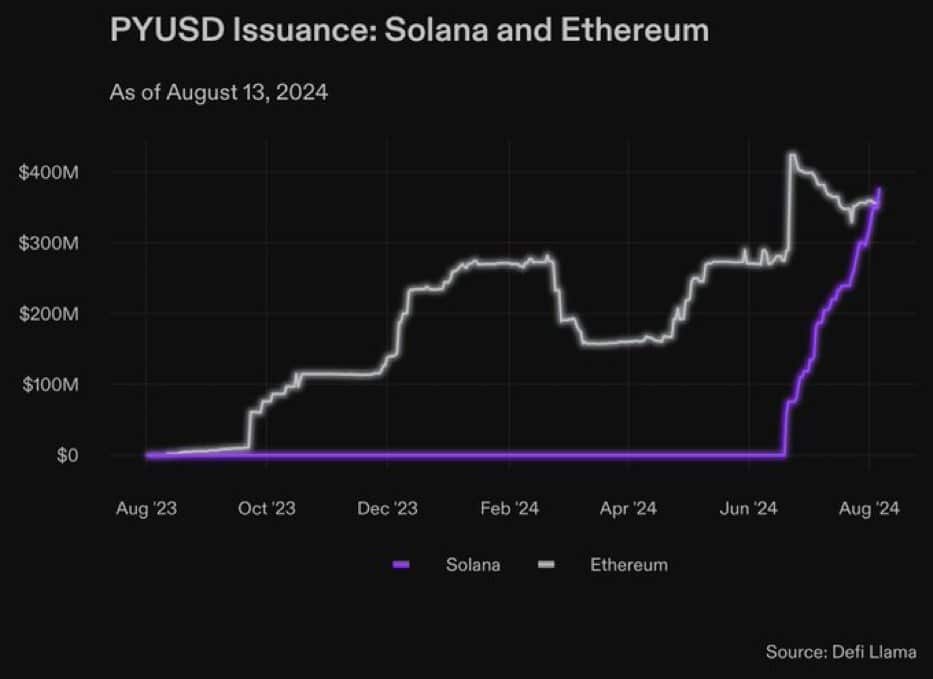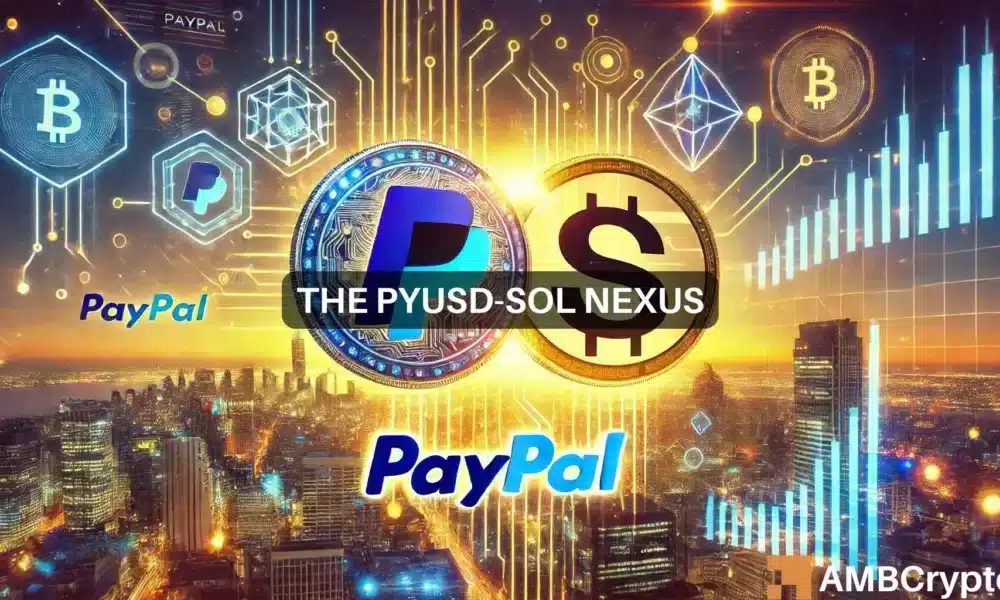- The PYUSD stablecoin is now the seventh largest stablecoin in the overall cryptocurrency market.
- Historically, the stablecoin has been a catalyst for Solana to overtake Ethereum in terms of adoption rate.
PayPal’s PYUSD stablecoin, issued by Paxos, runs on the Solana (SOL) blockchain, enabling fast and secure transactions for over 30 million merchants.
This extension supports PayPal’s goal of creating a stable digital currency for payments, making it a good opportunity for investors.
At press time, PYUSD was rapidly gaining market share, with a market capitalization at press time of approximately $737 million.


Source: CoinMarketCap
PayPal’s PYUSD stablecoin was the seventh largest at press time, with its market cap increasing by more than 150% after its expansion to Solana, which saw over $6 million in trading volume.
After launching on Solana, PayPal became the source of two prophetic indicators in the cryptocurrency space, with Solana overthrowing Ethereum (ETH) as the go-to chain and transaction privacy becoming mainstream (CT), helping the supply of PYUSD on that network surpass Ethereum.


Source: Kross Roads on X
The move highlights Solana’s growing influence in decentralized finance and its growing importance in the crypto ecosystem.
PYUSD on Solana surpasses Ethereum
The PYUSD stablecoin is growing rapidly on the Solana blockchain, surpassing Ethereum.
This growth is driven by higher yields from Solana’s DeFi protocols, weekly incentives from PayPal, and a strategic focus on Solana.
As a result, PYUSD’s market share on Solana reached $377 million, surpassing Ethereum’s $356 million.


Source: DefiLlama
The incentives are backed by PayPal’s reserve yields, establishing Solana as the leading blockchain for PYUSD.
Why did PYUSD expand to Solana?
PayPal extended its stablecoin PYUSD to Solana due to its cost-effectiveness, high transaction speed, and improved compliance through token extensions.
The supply of PYUSD on Solana has increased, signaling potential changes in the cryptocurrency market.
The move could signal Solana’s rise over Ethereum as a leading blockchain and the growing importance of transaction privacy in the crypto space.




